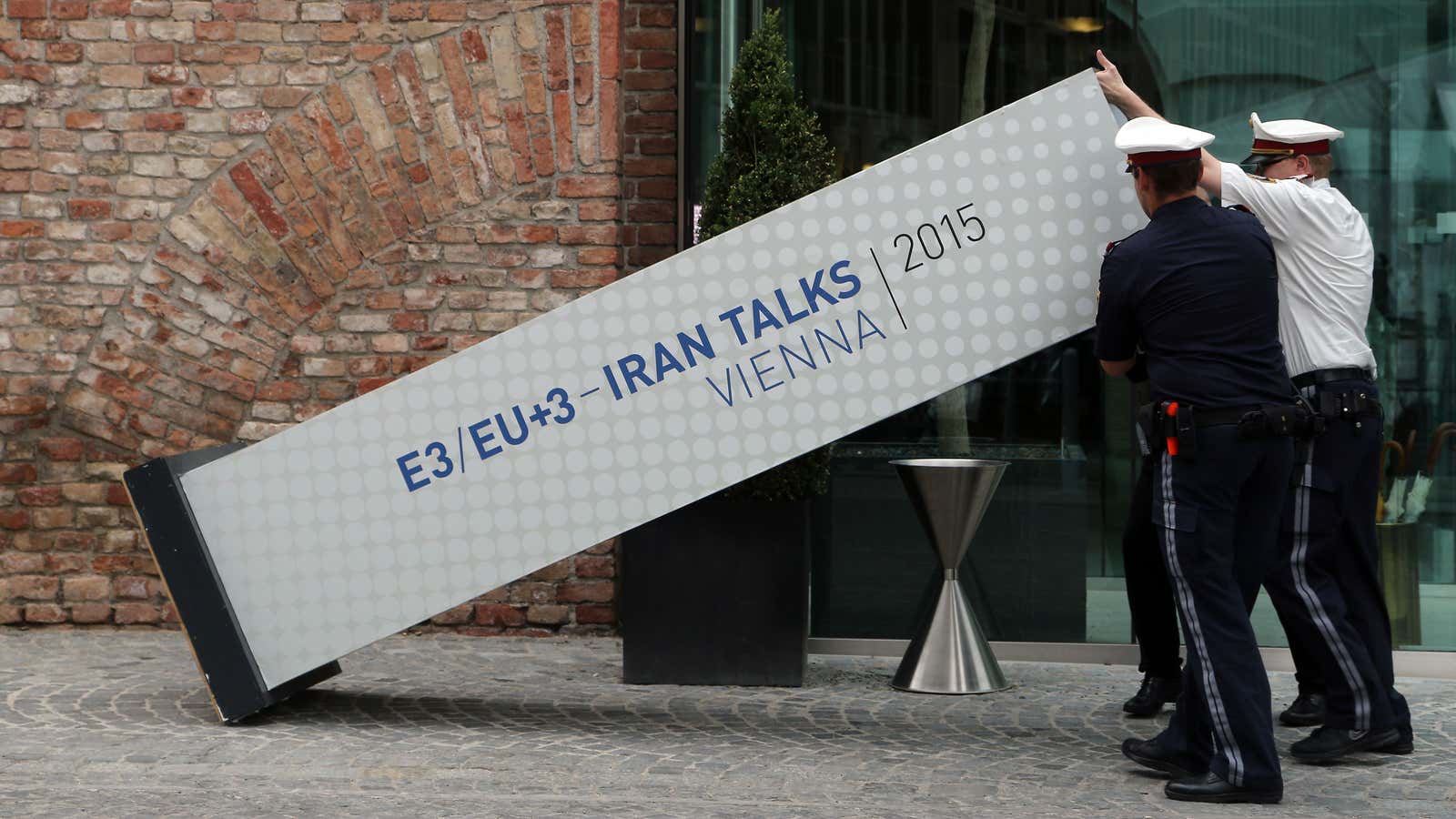This story has been updated to show that the talks have been extended past the July 9 deadline.
A shrewd oilman in Turkmenistan once told me that in war and other confrontations, merchants are axiomatically eager to do business. Even before the smoke clears, pent-up, undone trade can overwhelm negotiations, often providing the last, necessary push as the hordes of the profit-minded rush through a door left partly ajar.
So it appears with Iran, on the eve of a potential exit from global ostracism, as it works to finalize a deal with members of the UN Security Council and Germany after two years of talks about Tehran’s nuclear program.
The talks today were extended through at least July 10, meaning that now any deal the sides cut must be submitted to the US Congress for 60 days, rather than the 30-day period that would have been required if they had finished by July 9. Meanwhile, the unblinking prime players are eyeball-to-eyeball, watching for an opponent’s failing nerve, with both sides saying they will never concede their rock-bottom principles.
But signs of cracks are already apparent, and they are largely on the Iranian side. And that’s because while the street cred of nukes is important, so is business.
Iran has uncharacteristically shown its hand with a swaggering show of eagerness to get its oil back onto the market. First and foremost has been a proactive effort to line up western oil companies to work on its fields. In a conference last week in Brussels, Ali Majedi, Iran’s ambassador to Germany, said that Tehran had been talking with foreign oil companies for several months. The remarks suggest an “apparently more accommodating stance” on contractual arrangements with prospective foreign investors, according to Mark Lewis of Kepler Cheuvreaux, a Paris-based research firm.
The prospective investors are plenty eager themselves. Already, there are German companies in Tehran, positioned to move when the gate is lifted. French companies plan to help to renovate the Tehran and Mashhad airports, and that is only the beginning, officials from both countries say. Russian president Vladimir Putin has been working closely with Iran, specifically to reap benefits for Russian companies.
But whereas these firms are driven simply by profit, Iran’s ambitions are more complicated than that. This is a country seeking to lift its entire economy onto another plain.
It will not be easy. Iran’s oil will vie with petroleum from Saudi Arabia, Nigeria, and Russia, all of which already are in a cat fight over the pivotal Chinese and general Asian markets, as analysts at Citi observed in a July 6 note to clients. And oil prices are plunging, in large part because of the anticipation of the Iranian oil that will hit the market.
What’s certain is that, when it comes to the potential for foreign investment deals, both sides are heavily motivated, with the weight of leverage on the UN side—a feeling that seems likely to shape the closing act in the historic negotiations over Iran’s nuclear program.
